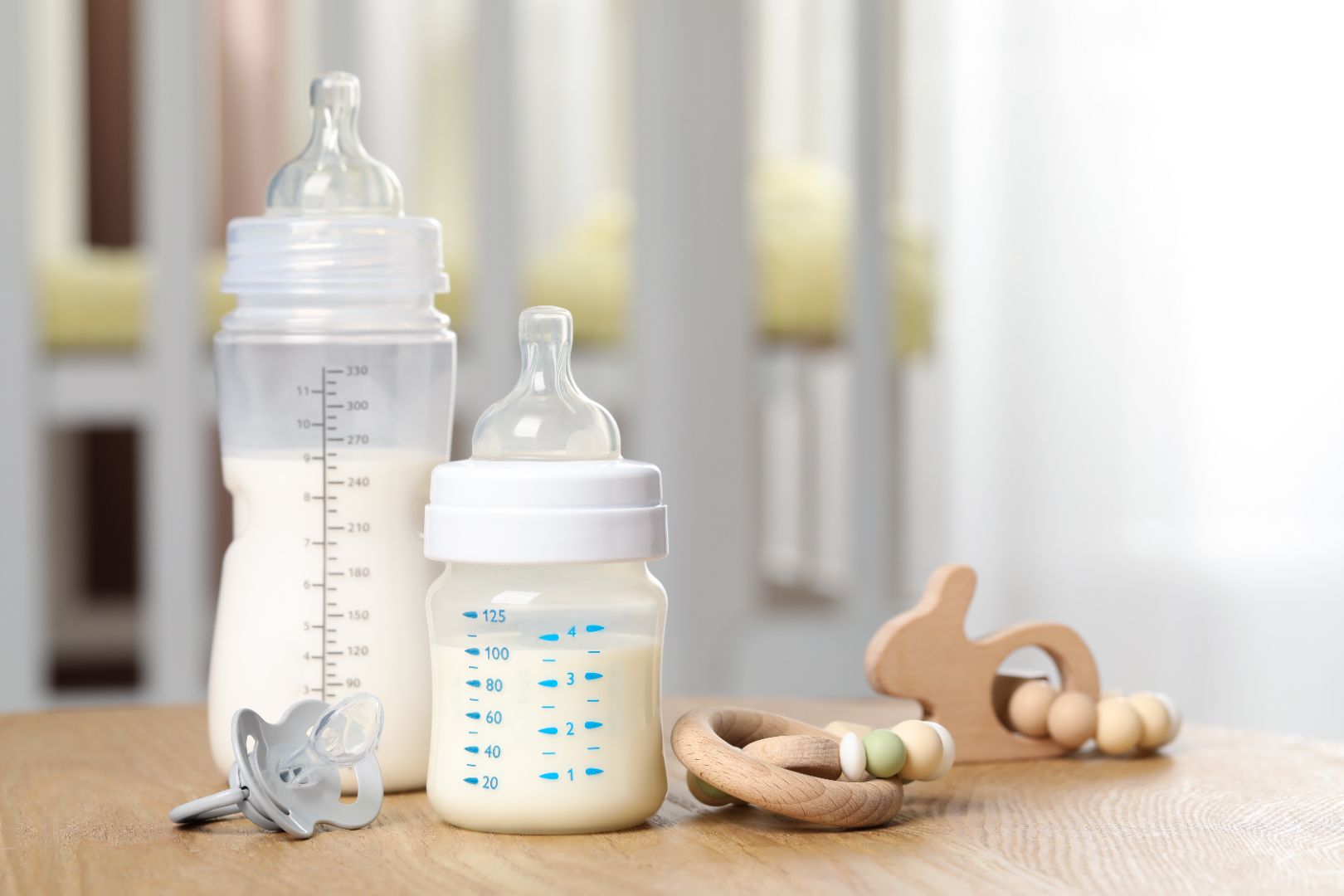Published April 30, 2024

What is A2 Baby Formula?
When it comes to infant nutrition, the conversation around baby formula has evolved significantly, with a growing emphasis on matching the nutritional profile (and digestibility) of breast milk as closely as possible. A2 baby formula stands out as a unique and innovative option! Let’s dive into the intricacies of A2 baby formula, its composition, benefits, and how it differentiates from traditional cow milk formulas.
Understanding A2 Baby Formula
A2 baby formula is a type of infant formula that is made from A2 cow milk. The distinguishing factor of A2 milk lies in the type of beta-casein protein it contains. Cow’s milk traditionally contains a mix of two types of beta-casein protein: A1 beta-casein and A2-beta casein. However, A2 baby formula is manufactured using milk from cows that produce only the A2 beta casein protein. This specificity is believed to influence the formula's digestibility and its impact on infant digestive systems.
The significance of A2 cow milk in infant nutrition is rooted in research that the A2 beta-casein is easier on the digestive systems of some individuals when compared to A1 beta casein. This distinction has spurred interest in A2 milk and, by extension, A2 baby formula, especially among infants who may have sensitivities to traditional cow milk formulas.
What's the Difference Between A1 and A2?
Most of the global cattle population produces milk with both A1 and A2 beta-casein proteins. A small number of cows, however, do not contain the genetic mutation that produces A1 beta-casein proteins. Based on genetic testing, these cows can be segregated and then bred with other cows that only produce A2 beta-casein, thus creating a herd of cows that produce A2 milk. This is done without any genetic modification or manipulation, and involves simply identifying the cows that naturally do not contain the A1 mutation. “Regular milk” contains a mix of both A1 and A2 beta-casein proteins, and we don't refer to it as A1 because both A1 and A2 beta-casein protein types are present, and because milk containing a mix of both protein types is what’s most commonly seen on shelves.
Composition and Nutritional Profile
A2 baby formula is designed to mimic the nutritional profile of breast milk, providing a complete source of nutrition for infants who are not breastfed or are partially breastfed. It includes essential amino acids, vitamins, and minerals that are crucial for growth and development during the first months of life. Beyond its unique source of beta-casein protein, A2 baby formula often incorporates additional nutritional enhancements to support infant health, including omega-3 fatty acids, added whey protein, and carbohydrates in the form of lactose.
Some A2 baby formulas are also certified organic, ensuring that the cow milk used comes from cows that are not treated with antibiotics or growth hormones and that the milk is produced following organic farming practices. This certification adds an extra layer of assurance for parents concerned about the presence of questionable chemicals in their baby’s formula.
Benefits of A2 Baby Formula
The primary benefit of A2 baby formula is improved digestibility in some infants. Parents and caregivers may turn to A2 baby formula if their baby experiences gastrointestinal issues, such as gas or bloating with traditional cow milk formula. The presence of A2 beta casein alone may help in reducing these digestive issues, providing a gentler alternative for sensitive stomachs.
A2 baby formula is praised for its closer resemblance to breast milk. It also supplies infants with the necessary building blocks for healthy growth, including milk protein, amino acids, and a balanced array of vitamins and minerals. This composition supports everything from bone development to neurological growth, ensuring that babies who consume A2 baby formula receive a solid foundation for health.
Considerations for Parents
While A2 baby formula presents an appealing option for infant nutrition, it’s always best to chat with your healthcare professional before making a switch from breast milk or another formula type. Every baby is different, so it’s important to choose a formula that aligns with your baby’s specific nutritional needs or sensitivities.
A2 baby formula can continue to be an important part of the diet as solid foods are introduced (typically around six months old), providing a consistent source of high-quality nutrients throughout the first year.
Final Thoughts
A2 baby formula offers a specialized option for parents seeking alternatives to traditional cow milk formulas. Its foundation of A2 cow milk, containing predominantly or exclusively A2 beta-casein, positions it as potentially more digestible and more similar to breast milk. By incorporating certified organic ingredients, essential amino acids, and a comprehensive spectrum of vitamins and minerals, Baby’s Only A2 Organic Milk Infant Formula supports the healthy growth and development of infants. As always, chat with your healthcare provider before switching formulas to ensure that A2 is right for your baby.
The content on this site is for informational purposes only and not intended to be a substitute for professional medical advice, diagnosis or treatment. Discuss any health or feeding concerns with your infant’s pediatrician. Never disregard professional medical advice or delay it based on the content on this page.


